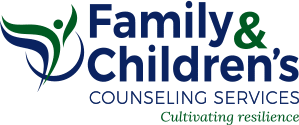Would You Know When You’ve Gone Too Far?
Mental health is essential to everyone’s overall health and well-being, and mental illnesses are common and treatable. But people experience symptoms of mental illnesses differently—and some engage in potentially dangerous or risky behaviors to avoid or cover up symptoms of a potential mental health problem.
Sometimes people—especially young people—struggling with mental health concerns develop habits and behaviors that increase the risk of developing or exacerbating mental illnesses, or could be signs of mental health problems themselves. Activities like compulsive sex, recreational drug use, obsessive internet use, excessive spending, or disordered exercise patterns can all be behaviors that can disrupt someone’s mental health and potentially lead them down a path towards crisis.
May is Mental Health Month!
Family & Children’s Society is partnering with Mental Health America (MHA) to raise awareness of Risky Business (#riskybusiness). The campaign is meant to educate and inform individuals dealing with a mental health concern and help them understand that some behaviors and habits can be detrimental to recovery— or even mask a deeper issue— but that seeking help is nothing to be ashamed of.
Take the interactive quiz at www.mentalhealthamerica.net/whatstoofar and tell MHA when you think behaviors or habits go from being acceptable to unhealthy.
Family & Children’s Society wants everyone to know that mental illnesses are real, that recovery is always the goal, and that even if you or someone you love are engaging in risky behavior, there is help. It is important to understand early symptoms of mental illness and know when certain behaviors are potentially signs of something more.
We need to speak up early and educate people about risky behavior and its connection to mental illness—and do so in a compassionate, judgement-free way. When we engage in prevention and early identification, we can help reduce the burden of mental illness by identifying symptoms and warning signs early—and provide effective treatment. So, let’s talk about what is and is not risky business. Let’s understand where it’s important to draw the line, so that we can address mental illness as early as possible, and help others on the road to recovery.
If you have concerns about risky behaviors for yourself, a family member or a friend, help is available in our community. Family & Children’s Society offers same day access to our mental health services. Need more info? Call our main office at (607) 729-6206.
For more information about Mental Health Month, visit www.mentalhealthamerica.net/may
